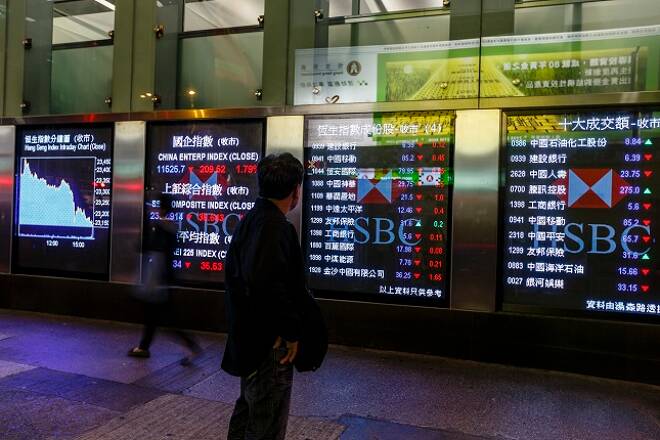Advertisement
Advertisement
Global Stocks Remain Vulnerable on Untimely Hawkishness of the Largest Central Banks
Published: Nov 5, 2018, 10:45 GMT+00:00
Global stocks remain vulnerable on Monday morning ahead of US midterm elections and geopolitical concerns. Hawkish largest central banks weigh on equity markets.
Despite the rebound of last week, which allowed key indices to bounce off the recent lows, the financial markets remain cautious. A new wave of pressure on Friday was spurred by the U.S. labor market report.
The data for October showed growth of employment by 250K and acceleration of wage growth up to 3.1% yoy (highest since 2009), as well as the persistence of unemployment at the level of 3.7%, which is the minimum since 1969. Strong data heightened the fears that the Fed will actively raise rates in the coming months to prevent overheating of the economy and not to push inflation out of control.
The trend of folding incentives was supported on Monday morning by the head of the Bank of Japan comments. In his speech, Kuroda noted that the strengthening of the economy allows abandoning the excessively soft monetary policy, although leaving the stimulation of the economy by soft policy.
A little over a week ago, the ECB head pointed to the continuation of plans to wind down the QE programme by the end of the year and repeat stance to increase the rates in less than a year.
Their intention to raise the stakes more decisively if Brexit will go smoothly last week was hinted by the Bank of England.
Such a tone from large and influential central banks is developing fears in the markets about the lack of liquidity in the markets. Previously, in early 2016, the easing from the ECB and the Bank of Japan and a pause in promotions from the Fed helped to keep markets from collapsing in the wake of fears around China. This time the situation looks different. Although the Chinese economy now feels better than it did three years ago, the decline in activity brings back the memories of that time. Published in the morning, Services PMI has been falling to lows for a year. And the composite index fell to 50.5 marks, which is the lowest level in two years and shows growth rates close to zero.
The determination of the developed countries’ central Bank in the phasing out of incentives can provoke the outflow of funds from the markets of developing countries and even create a new wave of flight from risks, as it happened in the episodes in 2014 and 2015. Then the markets managed to reassure promises not to tighten the policy without regard to financial stability in foreign markets. But it seems that the epidemic of the concentration only on the internal situation had already covered the central banks.
This article was written by FxPro
About the Author
Alexander Kuptsikevichcontributor
Alexander is engaged in the analysis of the currency market, the world economy, gold and oil for more than 10 years. He gives commentaries to leading socio-political and economic magazines, gives interviews for radio and television, and publishes his own researches.
Advertisement
